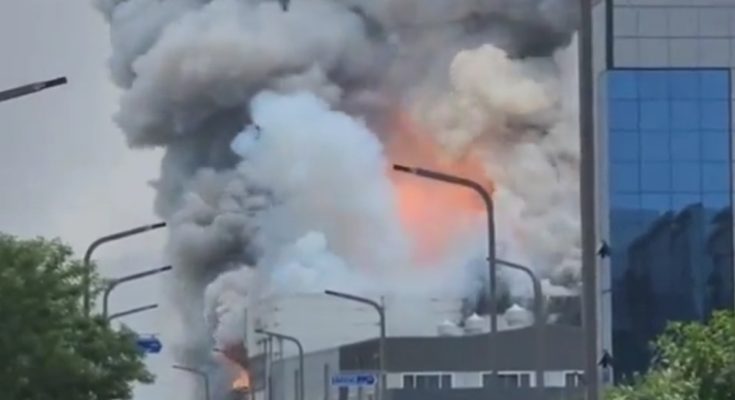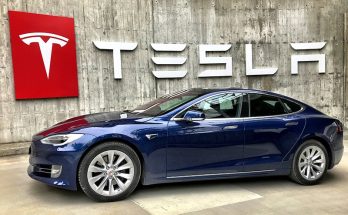#SouthKorea, #Fire, #Explosion, #LithiumIonBattery, #LithiumBatteryExplosion, #Aricell
Seoul/IBNS-CMEDIA: At least 22 people, including 18 Chinese nationals, were charred to death in a fire at a South Korean lithium battery factory on Monday, media reported.
The lithium battery plant is owned by Aricell, a South Korean primary battery manufacturer. It is located in Hwaseong city, just south of the capital Seoul.
According to an AFP report, firefighter Kim Jin-young told the media that the explosion occurred on the second floor of the factory where lithium-ion batteries were being inspected and packaged.
At that time at least 100 people were working at the factory and they heard a series of explosions.
Soon, a massive fire erupted, killing 20 foreign nationals—18 Chinese, 1 from Laos and another person of unknown nationality.
“Most of the bodies are badly burned so it will take some time to identify each one,” Kim Jin-young was quoted as saying by AFP.
At the moment, firefighters are looking for one more person, who remains unaccounted for.
The team said that they have managed to contain the largest blaze at the plant and get inside and are engaged in cooling operation to keep the fire from spreading to the nearby establishments.
The large factory stored nearly 35,000 battery cells on the second floor, with additional batteries kept in other areas.
Lithium batteries burn intensely and rapidly, making them difficult to control using conventional fire extinguishing methods.
Kim told reporters that fears of more explosions was preventing the team from entering the unit. The team used dry sand to put off the fire as spraying water wouldn’t have been of much help.
Shares of Aricell’s parent company, S-connect, plunged by over 20 percent on the Seoul exchange by close Monday. S-connect owns 96 percent of Aricell, the AFP report said.
Lithium batteries are used in everything from laptops to electric vehicles — but can be highly explosive, with airlines, for example, imposing strict regulations on checking devices containing them.





